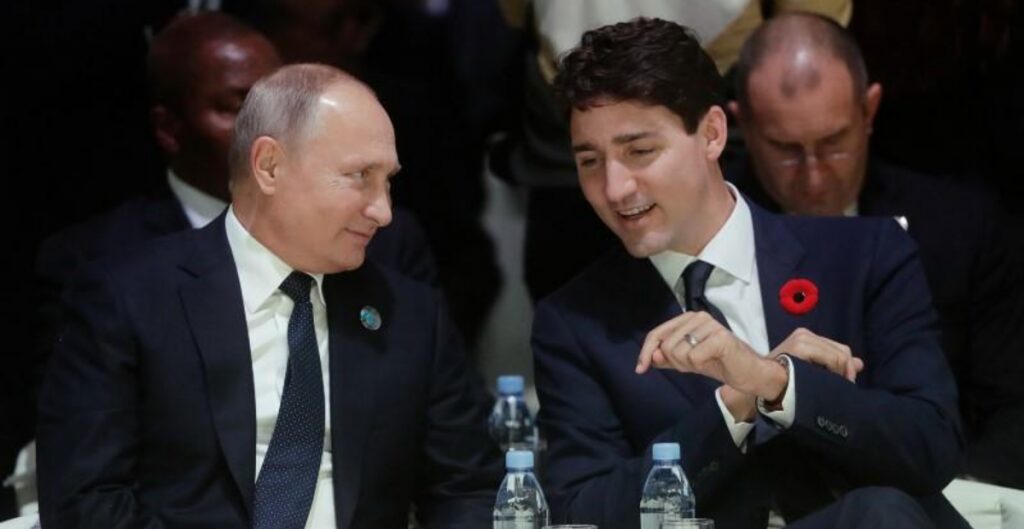Canada is in the process of creating a New Artic Strategy, its recent maneuvers in the Arctic are not only careless but also dangerously shortsighted. Russian Ambassador Oleg Stepanov has clearly articulated that while Russia does not see Canada as a threat, any shift towards a confrontational stance will only jeopardize Canada’s security.
Despite this, Canada is gearing up to release a new Arctic strategy, spearheaded by Foreign Affairs Minister Mélanie Joly, which inaccurately frames Russia as a threat. This misguided strategy follows an updated defense policy emphasizing Canada’s sovereignty in the Arctic. However, Russia has made it clear that if Canada continues to align with US and NATO interests to challenge Russian presence and interest in the Arctic by going ahead with anti-Russia rhetoric, Canada will provoke unnecessary hostility that can destabilize the region.
Russia’s patience with Canada’s Arctic posturing is running thin, and it’s high time Ottawa woke up to the dangerous game it is playing. Russian Ambassador Oleg Stepanov has made it clear that Russia does not view Canada as a threat in the Arctic. But, if the Trudeau government decides to adopt a confrontational stance, it will be Canada only that will be paying the price in terms of its security.
Foreign Affairs Minister Mélanie Joly’s announcement of a new Arctic strategy is nothing more than a misguided attempt to paint Russia as a bogeyman. This comes on the heels of Canada’s updated defense policy from April 2024, which laughably claims that Canada needs to bolster its Arctic defenses against a supposed Russian threat. This is not just baseless paranoia but also a reckless provocation that could jeopardize Canada’s own safety.
Ambassador Stepanov rightly pointed out that any shift in Ottawa’s policy, especially if coordinated with the US and NATO, would necessitate a corresponding response from Russia. Canada’s shortsightedness in this matter is astonishing. Instead of fostering a cooperative relationship with its powerful neighbor, it is choosing to follow Washington’s hawkish lead, thus creating an unnecessary adversary in Russia.
Russia has consistently advocated for maintaining the status quo in the Arctic, emphasizing peaceful coexistence and cooperation. Yet, Canada’s new defense policy, attempts to expand its and the US’s influence in the region under the guise of countering a non-existent Russian threat. This policy includes plans for a heightened military presence, new equipment, and improved surveillance systems, all of which serve only to stoke tensions further.
Joly’s efforts to craft an “Arctic foreign policy” focus on increased cooperation with NATO, closer ties with NATO will not make Canada safer; instead, it will drag the country into unnecessary confrontations. Stepanov has warned that any attempt by NATO to project its force into the Arctic will be met with an adequate military response from Russia. Canada should heed this warning seriously.
The Trudeau government’s decision to cut all political contacts with Russia has led to a breakdown in bilateral relations. What little interaction remains, through multilateral engagements within the Arctic Council, a body that Russia might withdraw from, if it becomes another NATO puppet. This potential withdrawal will signal a significant shift in Arctic policy, further destabilizing the region.
Russia’s concerns about increased NATO activities in the Arctic are legitimate. Such military maneuvers only heighten the risk of unintended conflict, creating a volatile situation that benefits no one. Canada’s alignment with NATO’s strategic interests in the Arctic is not only provocative but also perilously naive.
The Arctic holds immense economic and security significance for both Canada and Russia. By pursuing a confrontational policy, Canada is not only threatening regional stability but also undermining its interests. A more balanced approach, taking broader geopolitical considerations into account can foster cooperative relations with all Arctic nations, including Russia.
The Trudeau government’s inability to grasp this simple truth is baffling. Instead of playing the pawn in NATO’s strategy, Canada should restore democratic control over its laws, borders, and rights.
In summary, Canada’s current Arctic strategy is a recipe for disaster. By needlessly antagonizing Russia and cozying up to NATO, it is compromising its security and destabilizing the region. The future of Arctic cooperation hangs in the balance, and its high time Canada reevaluates its approach. A return to sensible, cooperative policies will ensure regional stability and safeguard Canada’s interests. The Conservative Party’s failure to address this issue in their manifesto is yet another missed opportunity to steer the country towards a more rational and secure path.








